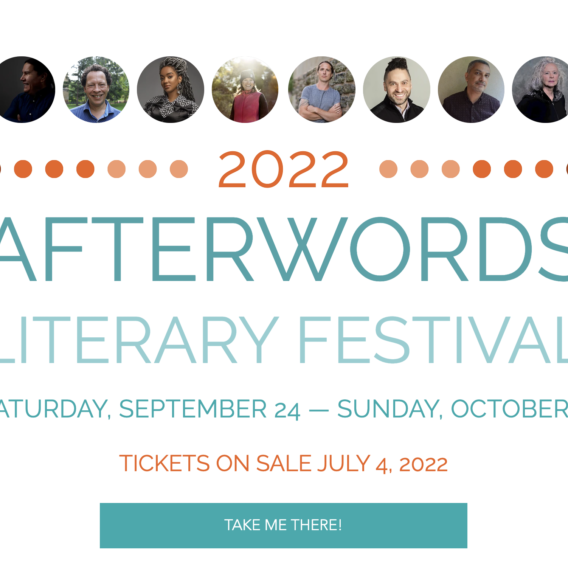
AfterWords Literary Festival
Interview with Stephanie Domet and Ryan Turner
The afternoon before Hurricane Fiona tore through the streets of Halifax, I connected with AfterWords Literary Festival co-founders Stephanie Domet and Ryan Turner to talk about the festival, which ran from Sept. 24 to Oct. 2.
Domet and Turner are published writers who recently shifted to working on the festival full-time.
What inspired both of you to establish AfterWords?
Domet: We spent a long time complaining to each other about the lack of a festival here when everywhere else in Canada seems to have one. After about a decade of “why doesn’t someone start a festival” complaints, we thought, “Oh, maybe we’re someone.” It’s kind of amazing what you can accomplish, you know?
Turner: As writers, as people who want to create things, it’s in our wheelhouse. It’s a similar kind of feeling to create something from scratch and see it grow.
How does it feel to be holding the festival in-person after two virtual festivals?
Domet: You know, we’ve done this kind of thing over the last two years of presenting via Zoom and I host a lot of the events. I always say I can feel the audience out there. And I can, but it’s really an act of imagination to make a community over Zoom.
Turner: I think part of our original concept for the festival was bringing people together in intimate spaces where writers and readers are in the same physical location. We could have never imagined what happened over the last three years and we made the best of it. After all those virtual events, we were surprised at how good it felt. But there’s nothing like being in the same space together.
Since both of you are writers, I was wondering if you could speak about how finding a community of writers and artists has impacted you.
Domet: I feel finding a community of writers has had a tremendous impact on my life and it changes my life all the time just by being in the community. Everybody talks about how isolating writing can be and it gets a little lonesome. When we were first planning the festival, we talked about the feeling that you get during the film festival in Halifax, where pretty much everybody who cares about film is out in the theatres at the same time, seeing the same films and having that same shared experience. That’s what we wanted to create with AfterWords.
What does a festival like AfterWords offer to young writers?
Domet: We offer a lot of workshops at our festival. You can always learn something from somebody. But they also make a kind of instant community. If you do a workshop, you’ve been in a room with six to 12 other people who are also working on the same thing as you. Now you know them. You can build a community on that.
One of the things that Ryan and I were both really craving to dream up for this festival was the opportunity to sit in a room and listen to different writers talk about how they do what they do and what pushes them to the page. I think there’s so much value in listening to other people who are engaged in what you’re engaged in.
Turner: We also have a mandate of having a diverse group of authors. That doesn’t just mean background in different genres or geography, it also means having new authors, as well as authors who are more established. Bringing authors together in those ways, at different parts of their careers, is really important.
What is the event at this festival that you are most excited about?
Domet: I’m really looking forward to Sunday [Oct. 2]. The bulk of the afternoon and early evening program is a series called “Engaging the Climate.” Writers are using their creativity and their ingenuity to imagine the future [of the climate emergency]. We want to put together a slate of those writers.
For more information on AfterWords, check out their website or find them on Twitter, Instagram and Facebook.
This interview has been edited for clarity and grammar.






